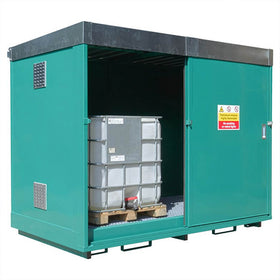Councils set to renege on weekly wheelie bin collections
A couple of month’s back we reported on the result of the government’s Weekly Collection Support Scheme. Local authorities were invited to apply for grants in February 2012 and around 85 local councils were awarded a share of the £250 million fund in late 2012. The initiative behind the scheme was to enable councils to institute or retain weekly wheelie bin collections.
However, a House of Commons research paper published in the last week, has concluded that the majority of the councils that currently operate a fortnightly collections service will not be returning to weekly collections, although it doesn’t mention which councils this applies to.
The paper will come as a blow to Eric Pickles, the Local Government Secretary, who perceived weekly bin collections to be a “basic right” for citizens. Despite his championing of the weekly bin collection, Mr Pickles has now implored the “people to campaign their councils.” This is despite the original policy stating that any council wishing to be considered for the scheme had to pledge to “provide a weekly collection service to residents for at least 5 years.”
Some local authorities will still be instituting the use of wheelie bins and retaining weekly bin collections. For instance, Dudley council received £1.8 million pounds of government money to retain weekly collections, phase out the use of black bin liners and create a more efficient system for recycling. The council has estimated that the introduction of 125,000 wheelie bins and the discontinuation of the black bags will save the around £250,000 a year.
Similarly, Darlington Borough Council has announced that wheelie bins will be rolled out across their borough from June this year. There is still one or two dissenting voices who believe that the 240 litre wheelie bins will be too large for the physically frail to handle, and have called for smaller bins to be used where appropriate.
To counter act this resistance local authorities could commit to a thorough survey of their residents’ waste management needs to devise a far more efficient waste collection service. For instance, instead of giving every household the standard 240 litre wheelie bins, households could be assessed on the number of occupants, their waste management habits and how much waste they are likely to produce; then they could be supplied with a wheelie bin in accordance with their needs.
www.yellowshield.co.uk



